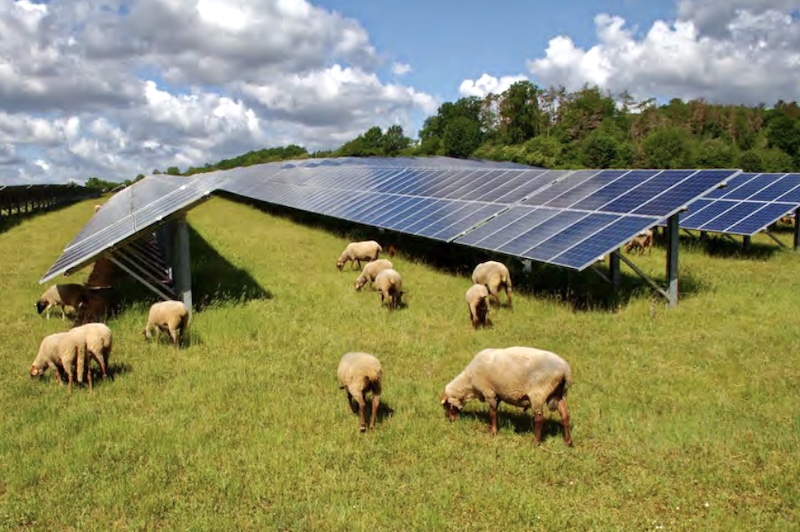This post was originally published on Eco Watch
A major new community solar project is coming to the Isle of Arran in Scotland. The 6 megawatt Glenkiln solar farm will be Scotland’s largest entirely community-owned solar farm.
The £5 million ($6.48 million) project proposal recently gained planning approval and will move forward in securing construction financing, Energy Global reported. According to Arran Community Renewables (ACR), the local Community Benefit Society behind the project, Glenkiln solar farm will generate enough energy to power around 1,250 households per year by the time it is in operation in 2027.
The site will span 8.6 hectares (20 acres) and, according to the proposal, will include around 10,000 solar panels. The project proposal also mentioned goals to incorporate sheep grazing around the solar panels and biodiversity incorporated in the design to benefit local wildlife.
“We are very pleased to be working with ACR to establish another renewable energy project on Glenkiln which provides further diversification of our business and financial benefit to the wider Community,” Kenneth Bone of Glenkiln Farm, who is allowing ACR to lease the site for solar development, said in a statement. “The solar farm will complement our existing hydro scheme perfectly with hydro generating power during wet periods and solar in drier spells. Another benefit is that the layout of the solar panels allows us to continue to graze sheep between the solar panel arrays. Together, both schemes on the farm will contribute significantly to Arran becoming net-zero.”
According to ACR, this major community solar project will help Scotland reach its goal of zero emissions by 2045 while also reducing fossil fuel dependence and increasing energy resiliency on the Isle of Arran.
“With this decision, we move one step closer to realising the full potential of true community-led renewables and the benefits that a project like this can bring to the island,” said Chris Grainger, director at ACR, as reported by Energy Global. “The hard work is not over, but we look forward to the next stage — securing construction finance, growing our local membership and getting boots on the ground.”
This is the first energy project from ACR, The Herald reported. Although Scotland is moving toward cleaner energy sources and will soon close its only oil refinery, there has been apprehension and backlash over renewable energy development. Offshore wind energy has significantly helped power Scotland, but when it comes to solar, citizens have expressed concerns over loss of farmland and the reliability of solar in a rainy climate.
However, supporters of the developments are confident that these projects, particularly community renewables, will provide reliable, emissions-free energy for years to come.
“We are delighted to be supporting Arran Community Renewables as they prepare to launch their community share offer for what will be Scotland’s largest community solar farm,” said Morven Lyon, Head of Democratic Finance at Development Trust Association (DTA) Scotland, as reported by Energy Global. “This project is a stellar example of a community taking the lead in the renewable energy transition, ensuring that the long-term benefits are shared equitably and sustainably.”
The post Biggest Community Solar Farm Project in Scotland Moves Forward appeared first on EcoWatch.





0 Comments